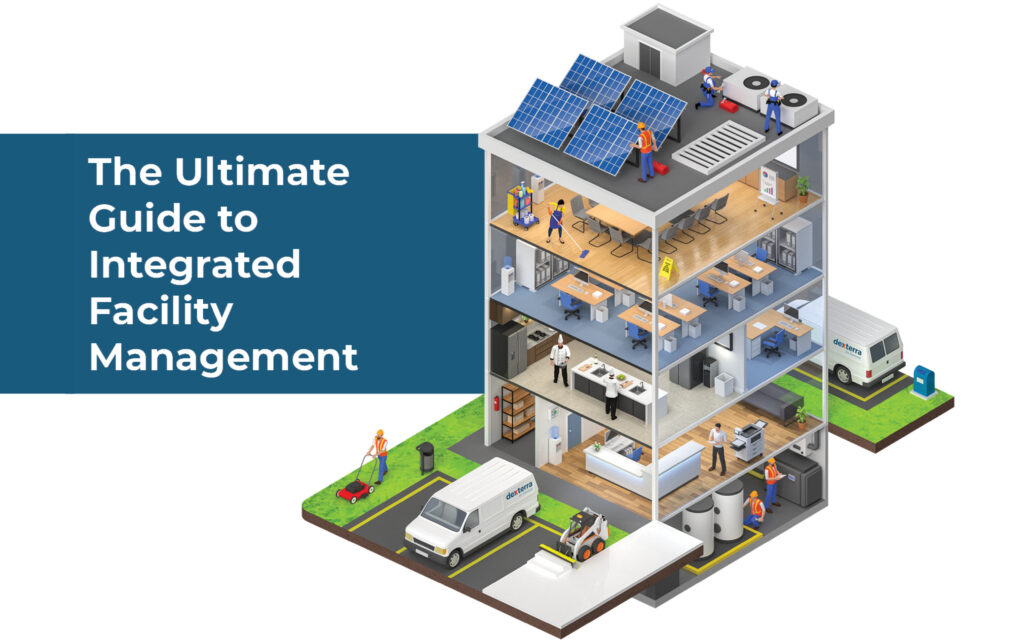Why Total Facility Management Is Vital for Organization Success
Total Facility Management (TFM) acts as a foundation for organization success by harmonizing diverse operational aspects such as maintenance, space usage, and precaution. This combination not just improves effectiveness however likewise aligns facility management with overarching business goals. As organizations browse an affordable landscape, comprehending the complex advantages of TFM can be pivotal in driving expense effectiveness and improving employee productivity. However, the ramifications of taking on TFM prolong far beyond immediate operational gains, elevating crucial concerns concerning its long-term influence on business durability and competition - Total Facility Management. What lies under this essential structure?
Understanding Total Facility Management
Total Facility Management (TFM) includes a detailed approach to managing a company's buildings and connected services to make sure optimal performance, safety and security, and efficiency. TFM integrates various disciplines, including upkeep, procedures, space management, and security procedures, to produce a natural structure that sustains a company's core purposes.
At its core, TFM intends to simplify the procedures associated with facility management, minimizing redundancies and boosting service distribution. This approach entails the control of tasks connected to building management, such as repair services, cleaning, and energy management, to cultivate an efficient setting for stakeholders and employees alike. TFM additionally highlights the importance of implementing ideal methods and innovative technologies to enhance service top quality and minimize functional costs.
Recognizing TFM needs acknowledgment of its calculated value in supporting a company's mission. By lining up facility management activities with business objectives, TFM enhances general performance while making sure compliance with health and wellness, safety and security, and environmental guidelines. Hence, TFM serves not only as a logistical feature but likewise as a critical possession, adding to a company's lasting sustainability and growth. In recap, TFM is crucial for developing a well-functioning setting for service success.
Secret Benefits of TFM
Leveraging a comprehensive technique, organizations that implement Total Facility Management (TFM) unlock a myriad of advantages that add to overall service success. One of the key advantages of TFM is the improvement of operational performance. By settling facility services under a unified management structure, companies can simplify processes, decrease redundancies, and boost communication across divisions.
Furthermore, TFM advertises a proactive maintenance method, which decreases downtime and extends the life expectancy of facilitiess and equipment (Total Facility Management). This positive technique not just enhances productivity however likewise promotes a more secure working environment, ultimately resulting in greater worker complete satisfaction and retention rates
Additionally, TFM helps with much better resource allotment by giving understandings into facility efficiency metrics. Organizations can determine locations for renovation, permitting them to make enlightened choices that line up with their tactical objectives.
TFM and Cost Effectiveness
Attaining expense performance is a fundamental goal for organizations, and Total Facility Management (TFM) plays a crucial role in this endeavor - Total Facility Management. By integrating various facility solutions under a single management structure, TFM enables companies to enhance operations and minimize redundancies. This holistic strategy causes significant expense savings, as it removes the need for several suppliers and simplifies purchase processes
Additionally, TFM fosters aggressive maintenance methods, which minimize the danger of costly repair services and downtime. By prioritizing precautionary actions, organizations can prolong the life-span of their assets and decrease unanticipated expenses. In addition, TFM incorporates energy management methods, which can considerably reduce energy prices via efficient resource use.
The centralization of data and analytics within TFM enables companies to make educated economic decisions. By determining fads and locations for enhancement, TFM makes it possible for customized approaches that better enhance cost management. Moreover, the scalability of TFM solutions guarantees that as organizations grow, their facility management techniques remain efficient and aligned with financial goals.
Enhancing Employee Performance
A well-managed facility can significantly improve staff member productivity by creating a conducive workplace. Effective Total Facility Management (TFM) ensures that all aspects of the office-- from illumination and temperature to cleanliness and safety-- are maximized. When workers run in a room that is comfy and properly maintained, they are a lot more likely to focus on their jobs, leading to greater outcome and work contentment.
Furthermore, TFM can boost collaboration via the tactical style of public areas, motivating synergy and development. By spending in the right resources and modern technology, organizations can assist in smooth interaction and enhance workflows, additionally boosting performance. Regular maintenance and timely actions to facility concerns prevent interruptions that might or else impede efficiency.
In addition, a safe and healthy and balanced work atmosphere, sustained by TFM techniques, minimizes absence and advertises wellness, directly correlating with enhanced efficiency levels. Ultimately, prioritizing facility management is a financial investment not just in physical properties yet also in the workforce itself. By fostering an environment that supports employee demands and choices, organizations can grow a much more involved and effective workforce, driving general success and competitive benefit.

Future Trends in TFM
Welcoming technological advancements is readied to improve the landscape of Total Facility Management (TFM) in the coming years. As the demand for performance and sustainability increases, TFM will significantly embrace smart building technologies, incorporating Net of Points (IoT) tools to manage and keep track of facility operations in real-time. This change will certainly enable proactive maintenance, considerably minimizing functional expenses and improving solution distribution.

Sustainability remains an essential focus, with TFM experts expected to prioritize green practices. This includes using renewable resource sources and optimizing waste management systems to lower the carbon impact of facilitiess.
Remote management abilities will certainly additionally be expanded, allowing facility managers to supervise operations from essentially anywhere. This versatility will certainly come to be essential as companies adjust to crossbreed job versions. In recap, the future of TFM is positioned for transformation through technology, sustainability, and enhanced operational strategies, guaranteeing companies stay competitive in a developing landscape.
Final Thought
By incorporating various operational features, TFM boosts effectiveness and straightens facility management with business objectives. As services progressively take on lasting techniques and innovative innovations, the value of TFM will certainly continue to grow, making sure lasting functional performance and competition in an evolving marketplace.

Comments on “How Total Facility Management Can Improve Operational Efficiency and Lower Costs”